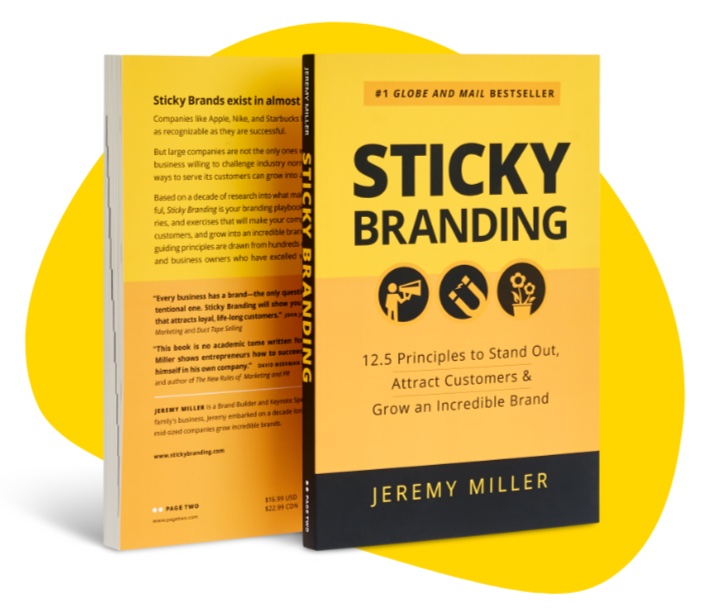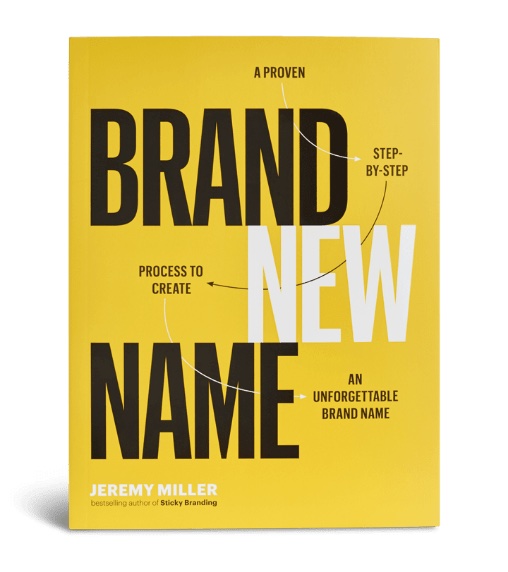Writing a book is one of the most rewarding things you can do.
It’s incredible to consolidate your thoughts and put them down in a long form document. It’s incredible to create a product that will bring other people value. It’s incredible to have people read it, share it, and appreciate it.
That’s how I felt writing Sticky Branding. It was one of the best projects I’ve ever done. And to see it make the bestsellers’ lists and beat Oprah — wow, nothing compares.
But it wasn’t easy.
Writing the book was also one of the hardest things I’ve ever done. I describe my experience this way. Imagine cram night in university. Now repeat that process for six days a week over nine months. That was my experience writing Sticky Branding.
So the title of this article is a little misleading. Writing a bestseller may take a piece of your soul, but the question is how much?
As hard as it was to write the book, it could have been worse. I saved myself a lot of undue stress because I had a plan. A strong plan is your savior when writing a business book. It will help you avoid losing every shred of your humanity as you toil through your words while trying to maintain a day job.
To write Sticky Branding I applied five principles to focus my time and save my soul.
1. The Book Proposal is the Blueprint
You can’t build a house without a blueprint. The same goes for your book.
A well thought out book proposal will save you a lot of headaches as you start writing the book. Spend the time upfront to map out your thesis, conduct your research, develop core stories and metaphors, and define the structure of each and every chapter.
The more focused your book proposal, the easier it will be to write your book. Plus a well developed book proposal makes it a lot easier to sell your title to a publisher.
I actually hired a freelance editor, Don Loney, to help me prepare the book proposal. It was one of the best investments I made.
2. Write to a Deadline
Writing a business book goes through predictable phases: first draft, substantive edit, copy edit, design, and page proofs.
Work with your publisher from the start to define each of the major milestones and due dates. If possible, do it as part of the contract negotiation.
Once you know the dates you can develop your plan for each milestone, and how you will accomplish them in the allotted timeframe.
For example, I figured out early on that it took me two-and-a-half days to write a chapter, and three days to rewrite a chapter. (I rewrote every chapter at least twice. I didn’t like rewriting the chapters and cursed my editor under my breath, but I am so glad he pushed me to write better.)
By understanding my writing pace I could schedule my time and achieve my deadlines with some room to spare.
The due dates come upon you fast and furious. If you’re not careful you will find yourself behind schedule and stressed out beyond belief.
3. Finish the First Draft, FAST
If you blog regularly you may get lured into the trap of making your words perfect. I definitely fell into this trap as I found myself rewriting the first few chapters of the book again and again.
Eventually my editor stopped me and said he wouldn’t look at my work until I completed the entire first draft. It was great advice.
A business book is 60,000 to 80,000 words. If you keep getting stuck perfecting the words in one section you will never get enough momentum to complete the project.
Anne Lamott writes in Bird by Bird, “Almost all good writing begins with terrible first efforts. You need to start somewhere.” Get that first draft done, and then refine it.
4. Share The Workload
The book is a massive project, and can completely upset the balance of your life. Find ways to alleviate the stress.
Build resources into your plan. This could involve hiring a cleaning lady to keep some order in your house. It could mean recruiting a writing buddy to help keep you on track and do weekly check-ins. It could be hiring a research assistant, a designer, or some other professional you need to help you complete the book.
Figure out the resources you need at the beginning, and lean on them. It’s amazing how many people will help you and support you through this journey. It’s really inspiring to discover who is in your corner.
5. Focus On What You Do Best
You may aspire to write like Malcolm Gladwell or Seth Godin, but that’s not the real measuring stick.
Create a book to the best of your abilities. Create a product that you are proud of. That’s all you can hope for. Write the best book that’s in you, and then promote and market it to the best of your abilities.
The market will tell you if they like it or not. That’s outside of your control. But you can put your best foot forward, and that’s something to be proud of.
Do you have a business book in you? If so, I encourage you to write it. The world needs your voice. Set your plan, do the work, and create your own bestselling business book.





